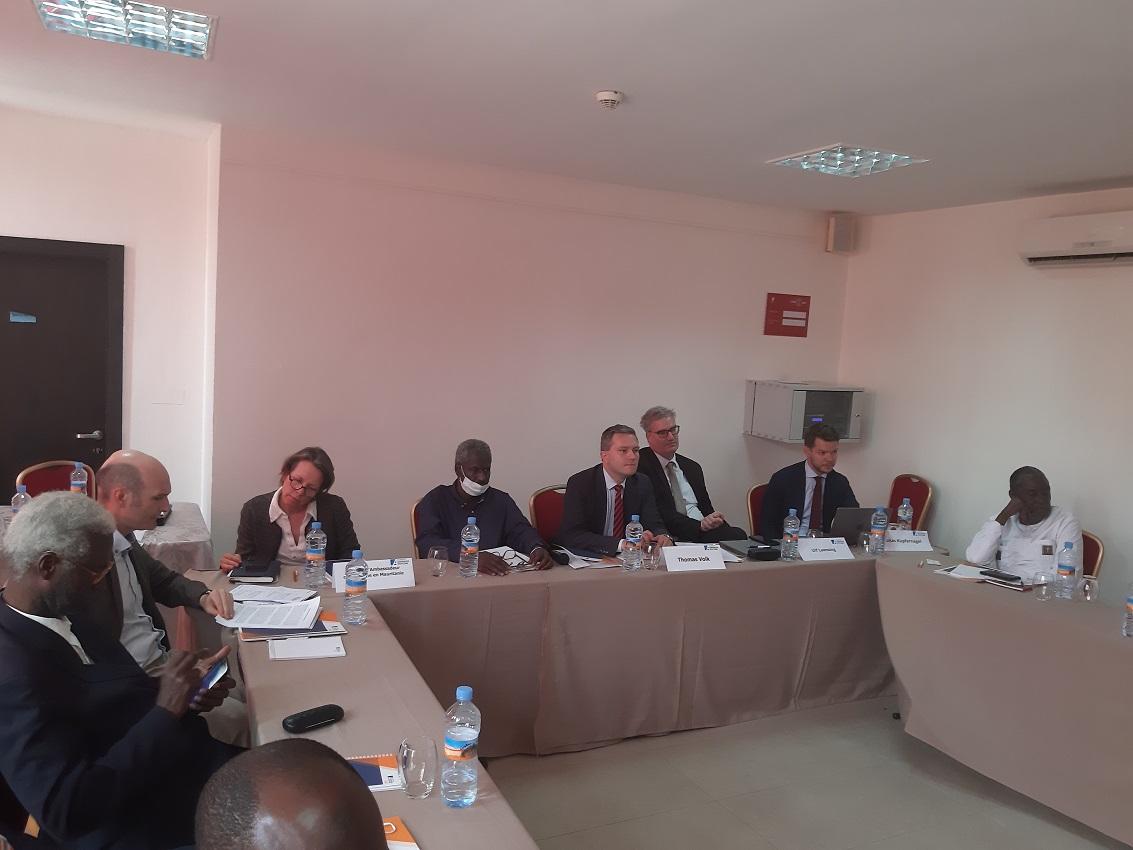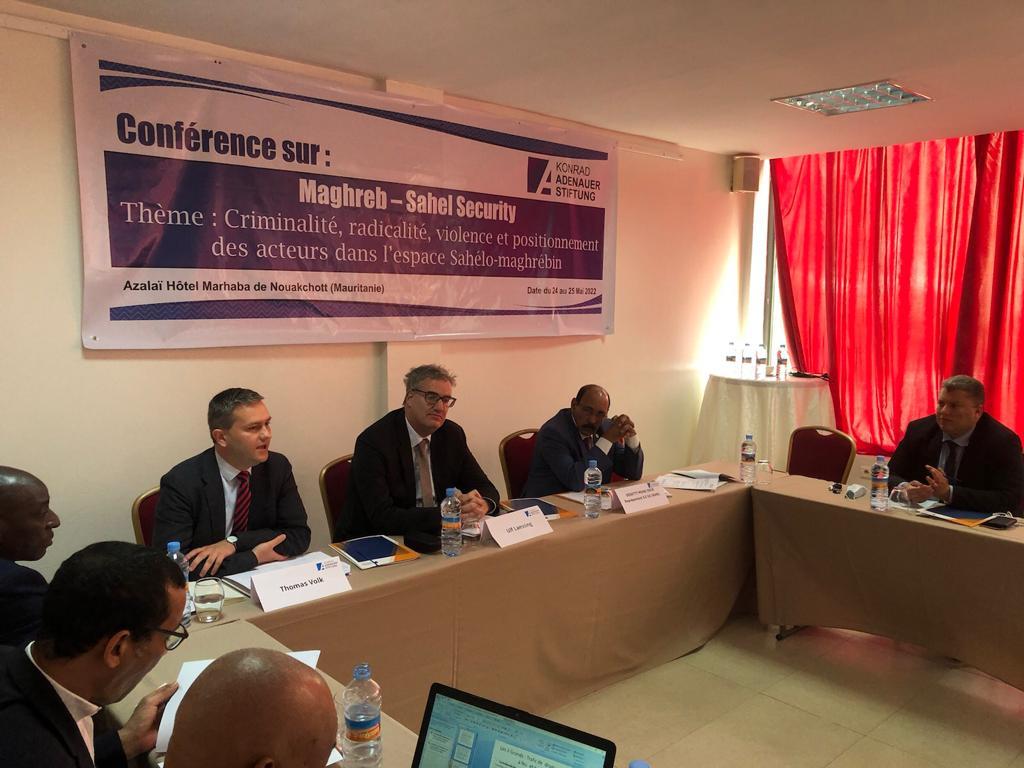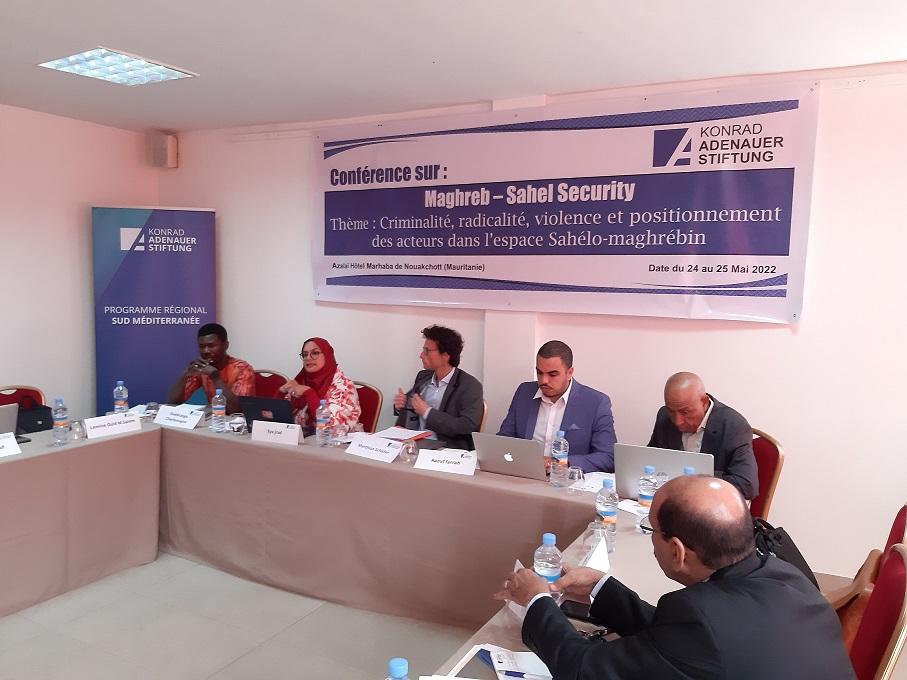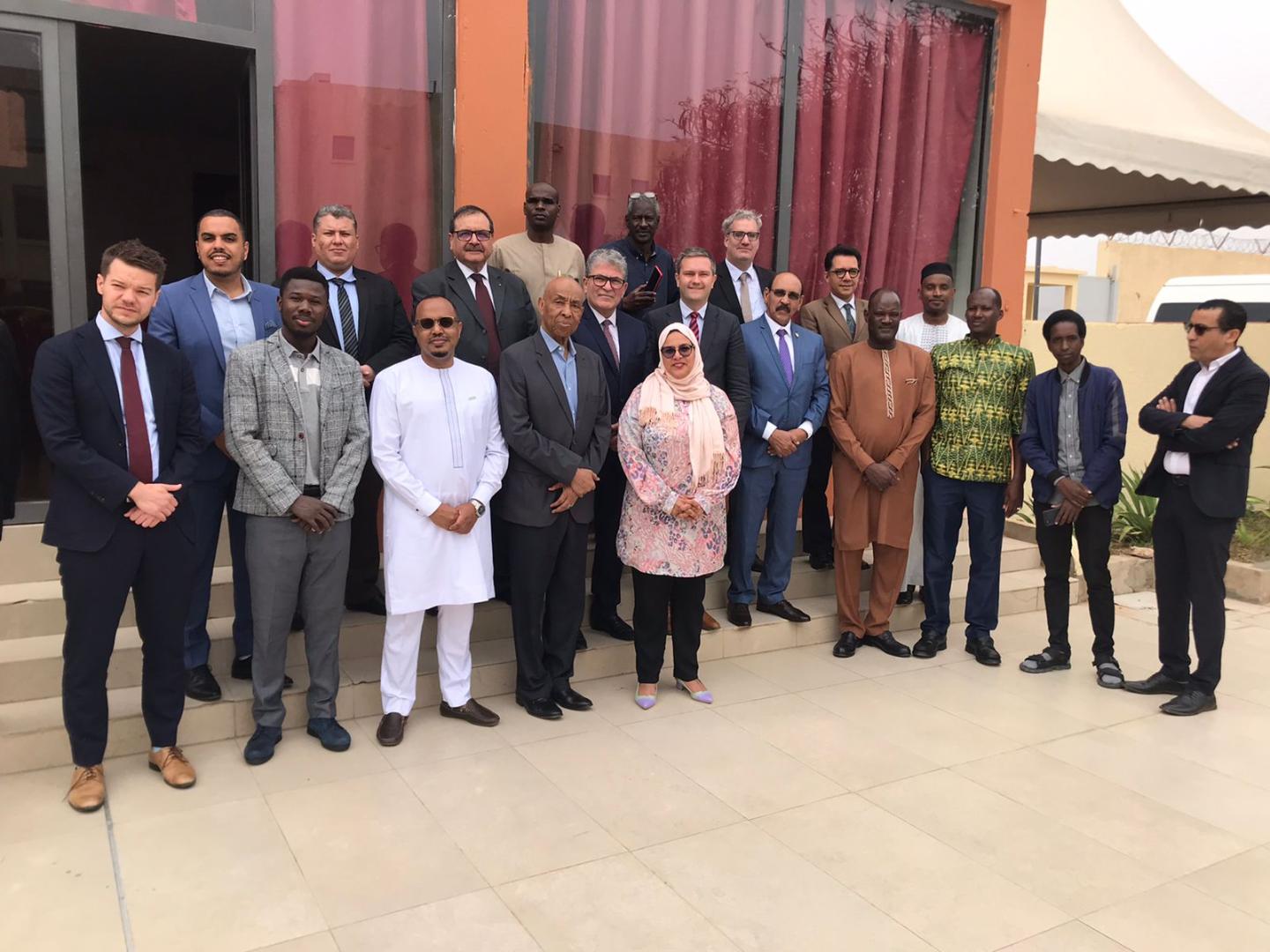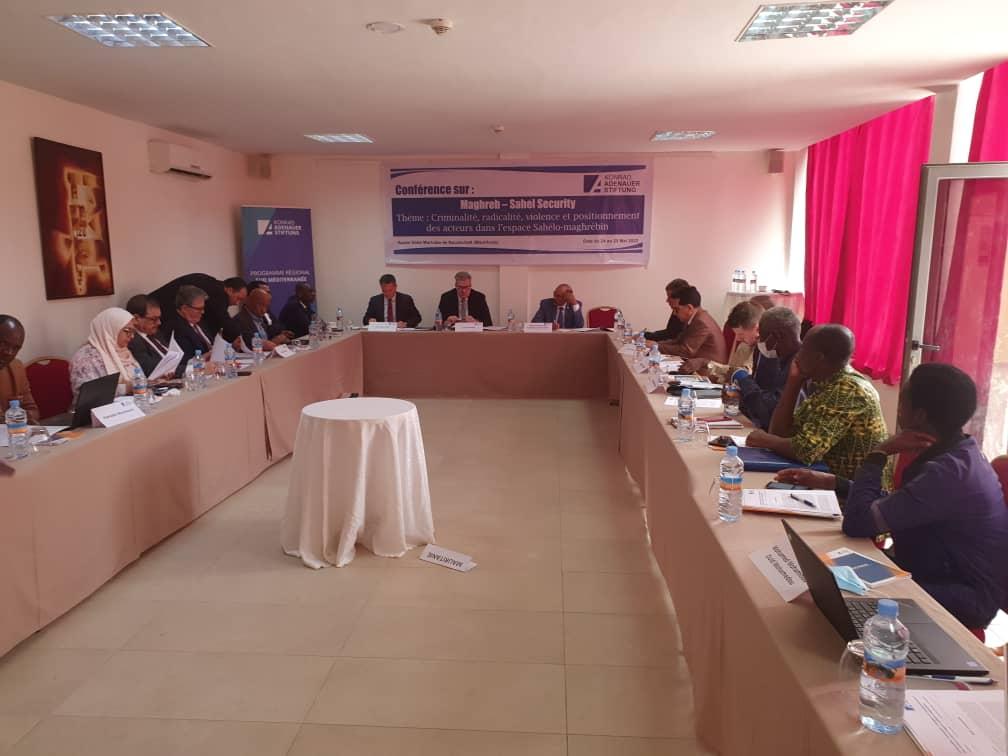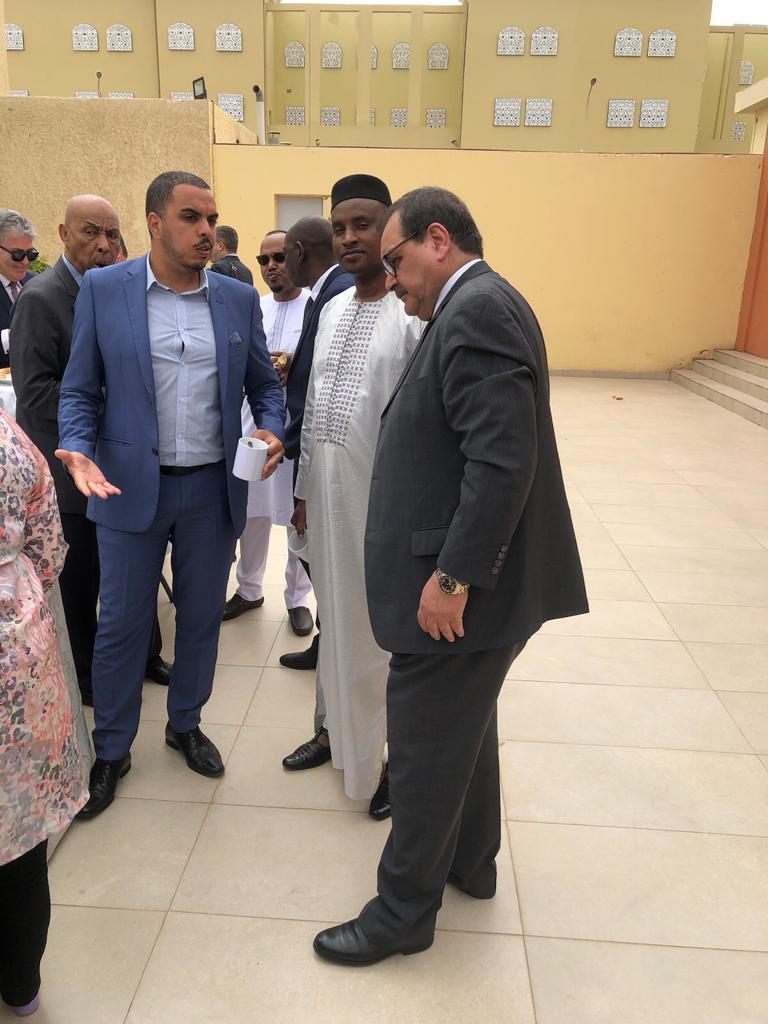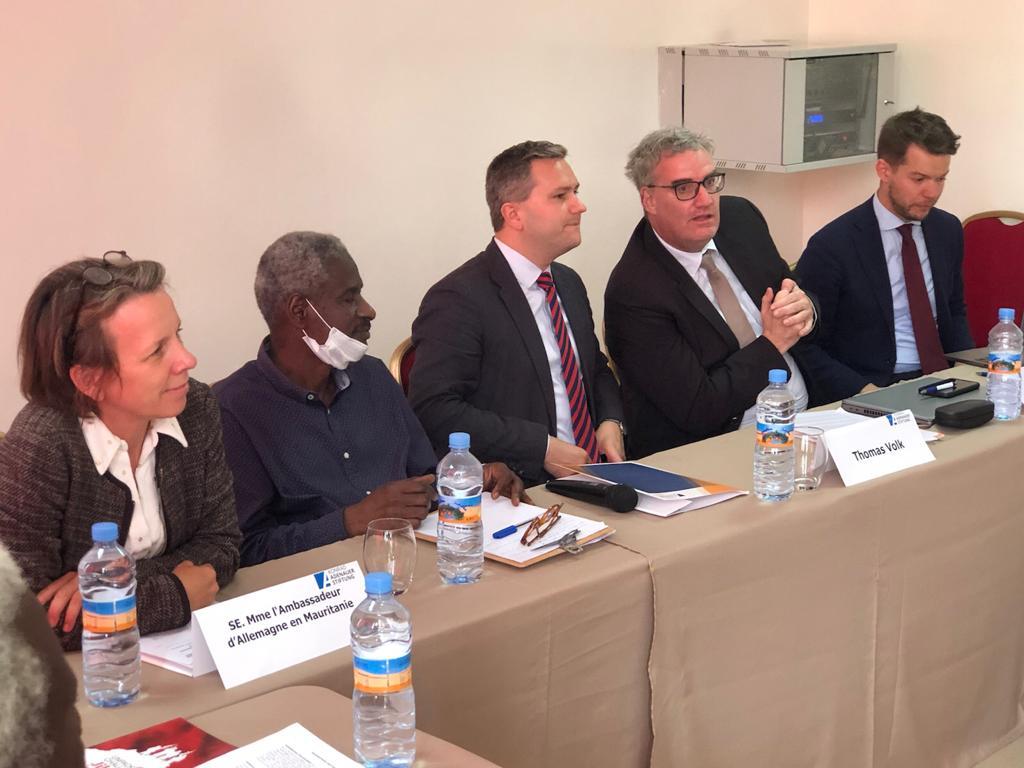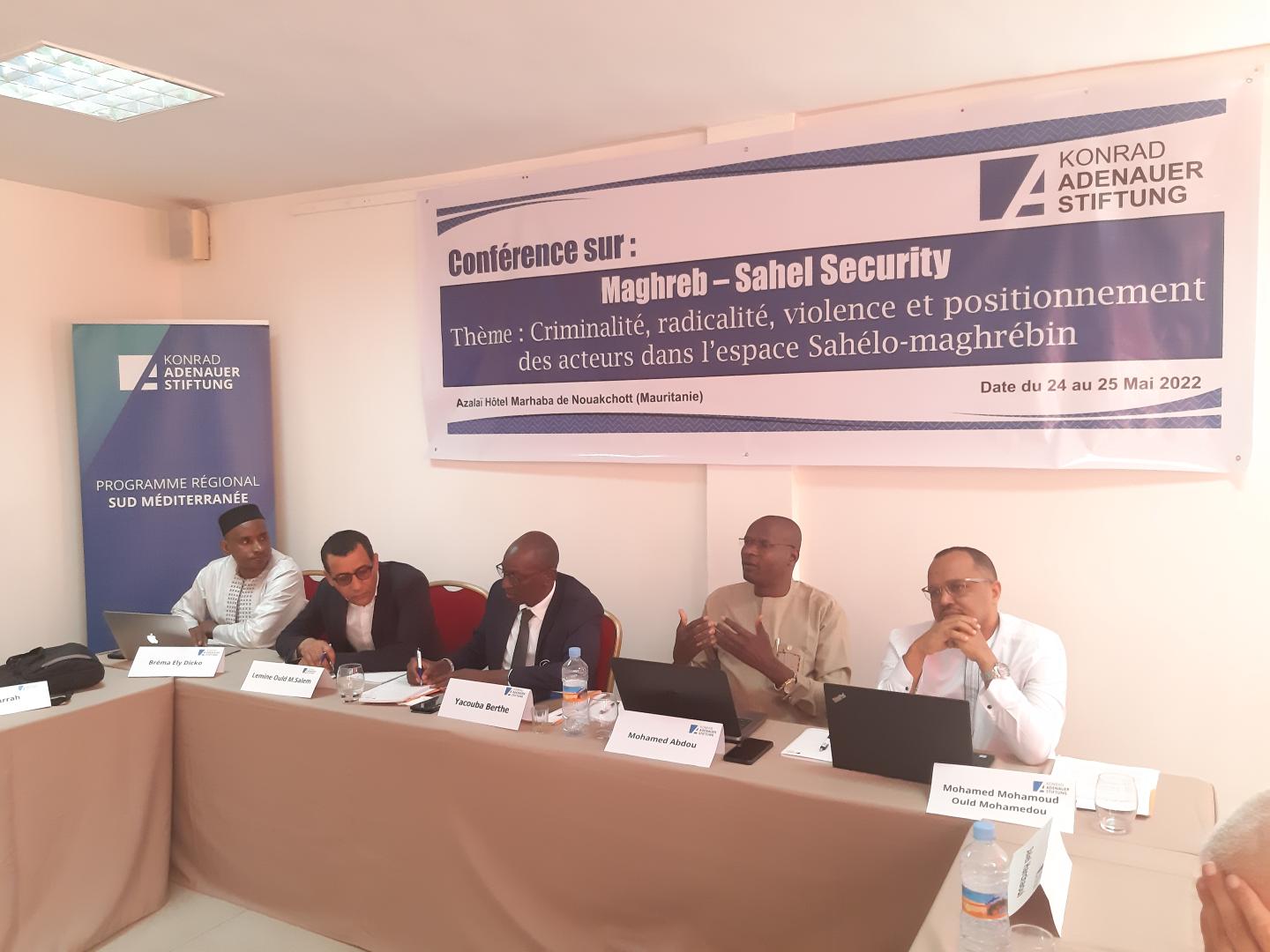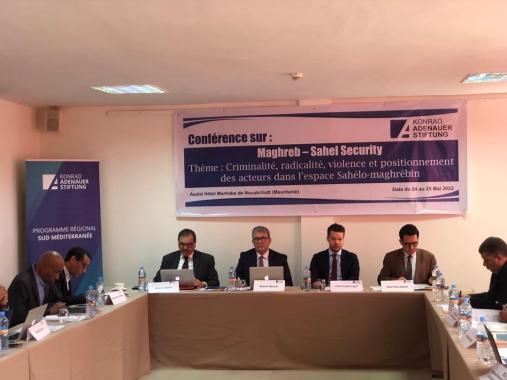On 24 and 25 May 2022, the Regional Programme Political Dialogue South Mediterranean of the Konrad Adenauer Stiftung (KAS PolDiMed) and the Regional Programme Sahel of the Konrad Adenauer Stiftung, co-organized a conference in Nouakchott entitled: “Criminality, radicalization, violence and actors’ positioning in the Sahel and Maghreb regions”.
To put it in context, the aftermath of the collapse of Gaddafi’s regime and the rebellion in northern Mali have severely affected the security stability of both the Maghreb and the Sahel regions. Indeed, the fragile security situations in these regions date back to prior to 2011, however, the Libyan and Malian crises have unprecedently proved the intertwining character of security challenges faced by the two regions and the necessity to join forces to effectively address them. Therefore, it is of great importance to turn the spotlight on the evolution of security dynamics in the two regions over the past decade. In this regard, the conference brought together a group of local experts and specialists from diplomatic, military and academic backgrounds to critically discuss the prevailing and looming security challenges facing the Maghreb and the Sahel.
First and foremost, the conference addressed the impact of Russia’s war on Ukraine on the Maghreb-Sahel security relations and shed light on the nature of Russia’s presence in the two regions, its changing relations with some key countries in these areas and the possible evolution of its security interventionism, especially in light of its war in Ukraine as well as the French withdrawal from Mali. Secondly, the conference unpacked the challenge of Jihadist extremism in the two regions by mapping the areas of Jihadi groups activity and analyzing their new trends as well as the nature of their growing ties with local communities which underpin their capacity of resilience and combat. Moreover, the strengths and limitations of Maghreb-Sahel governments’ strategies to prevent and fight against violent extremism have been widely discussed in the second panel. Finally, the third panel addressed the evolution of transnational organized crime in the Maghreb and the Sahel regions with a particular focus on: irregular migration, human smuggling and arms trafficking. This panel paid special attention to the analysis of changing strategies, business models, new actors and routes of organized crime groups. The degree of intersection of these groups and jihadist ones has been also thoroughly discussed in the last panel.
During the two days of the event, a wide range of security challenges have been relevantly discussed and a set of practical recommendations has been put forward by the experts for closer examination.



